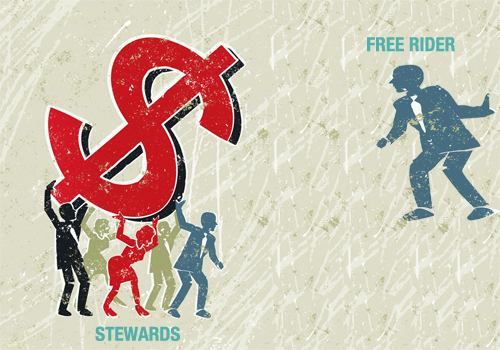

Carl E. Smith, President and CEO of Call2Recycle
We spent a few minutes with Carl Smith, CEO and president of Call2Recycle. Carl is a leading advocate for battery recycling across North America. We spoke to Smith about one of the industry’s biggest issues—free riders.
When it comes to increasing battery recycling rates, what do you think are your biggest challenges so far this year?
There are two challenges that I think about every day. The first is how to continue to make it easy and important for consumers to recycle products like batteries. The second is to make sure Call2Recycle is sufficiently funded to meet these challenges.
Can you talk a little about how Call2Recycle is financed?
We have industry stewards– battery and product manufacturers that for the most part voluntarily contribute funding to ensure that the batteries they introduce into the marketplace are responsibly recycled when they reach their end of life. Our steward list includes virtually all of the familiar consumer brands. Fees are assessed based on the number of batteries the company distributes into the North American marketplace.
So, what role does a free rider play?
The most critical element of our program is that all companies that put batteries into the marketplace should pay for the recycling. But approximately 30% of batteries we collect are from ‘free riders’—battery brands that are recycled through our program but are not financially contributing to Call2Recycle. These batteries are collected because we want to make recycling easy and we want to maximize what we collect. To do that, we don’t differentiate the brand being collected.
 Who is a typical free rider?
Who is a typical free rider?
Most free riders are manufacturers outside North America. In many cases a second company imports the batteries and a third company may brand and distribute them. It is difficult to identify and pursue the responsible parties due to complex issue of ownership.
What does free ridership mean for Call2Recycle’s battery recycling program?
We have to make up for the funding gap by charging participating companies enough to cover all program costs. We are shifting costs onto those companies that have stepped forward to participate. Companies that don’t participate gain a competitive advantage because they don’t have to increase their product costs to pay for recycling costs. That’s not fair.
What are you doing to invite more participation?
First, we reach out to these brands and invite them to participate. Some aren’t aware a program exists or that they are required to participate under certain state or provincial regulations. If this isn’t sufficient, we will give the company’s information to the appropriate government agency responsible for recycling enforcement, especially in states and provinces where it is mandated by law.
What if that doesn’t work?
We need tougher laws that require non-participating companies to join a formal program. We are advocating for state and provincial regulations that require manufacturers to recycle their batteries under the threat of penalties, including having their products blocked from being sold within the state or province. In addition, we are now actively considering how to raise public awareness of non-participating companies and their opposition to recycling. We hope that consumers will demand a more environmentally sustainable behavior from these companies.
Any parting thoughts?
We base our program success on increasing the number of batteries we generate through our 34,000+ collection sites. The more we collect, the more important it is to capture the free riders and get them to participate. All companies have a duty to be environmentally responsible. It’s no longer a choice, it’s a part of doing business.
What can consumers do to help get rid of free riders?
I recommend several ways for consumers to take action.
- Buy batteries from reputable companies that are environmentally responsible and fund end-of-life recycling through the Call2Recycle program. You can do this by checking our website for a current list of industry stewards or checking for the Call2Recycle seal on the battery or product packaging.
- Avoid purchasing brands that don’t have the Call2Recycle seal or aren’t listed as an industry steward on our website. Chances are that they are not contributing to the proper end-of-life management of their batteries in the US and Canada. Encourage your family and friends to do the same.
- Support battery recycling laws in your state or province. States and provinces such as British Columbia, California, Connecticut, Manitoba, Minnesota, New York, Oregon, Quebec, Texas, Vermont, and Washington have implemented or are considering battery recycling legislation. Contact your local state or provincial representative and let them know that you support battery recycling for all manufacturers.
SEP